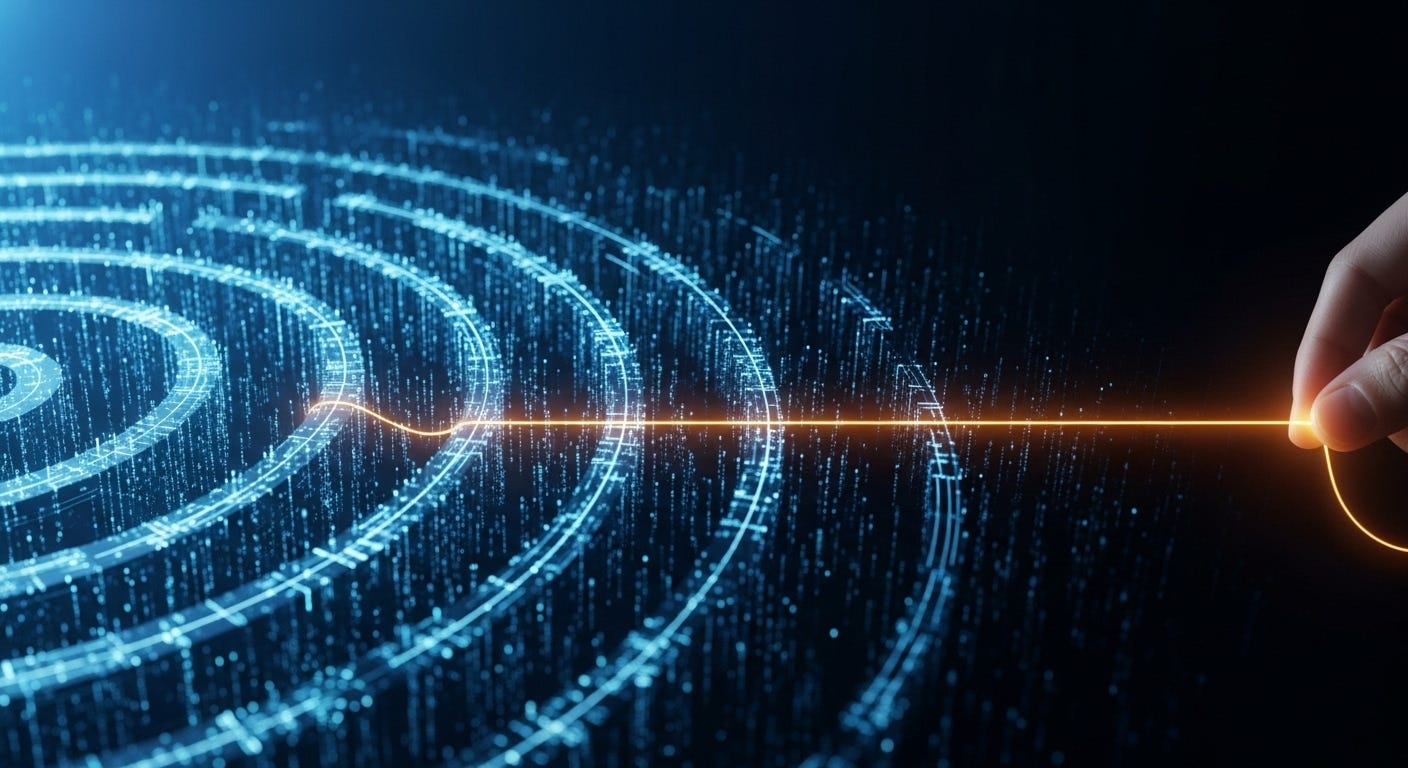In an Age of AI, Our Greatest Tool is Still Each Other
I'm Bullish on AI, But I'm Betting on People.
Let me be clear: I am extremely bullish on AI. It has been a phenomenal partner in my work, augmenting my skills in ways that still feel like magic. It helps me brainstorm ideas, untangle complex data, and unlock new avenues of creativity I never would have found on my own. It helps me do things I simply could not do before.
But there’s another side to this story. There’s a feeling I’m hearing echoed in conversations with colleagues and friends nearly every day. It’s the feeling of a low-grade, constant hum of information overload. A digital exhaustion that settles in by the end of the day. We have this incredible technology at our fingertips, promising to make us smarter and faster, yet many of us just feel more tired. The core conflict of our time is learning how to embrace the amazing potential of AI without being consumed by the noise it creates.
The Second Job We Never Asked For
The feeling isn't just in our heads. A recent LinkedIn study that got me thinking about this topic found that more than half of professionals (51%) say learning AI feels like another job. That phrase hit me hard because it’s so true. It's a job we never applied for, and it doesn't come with a paycheck. Instead, it comes with a "cognitive tax."
This tax is the mental energy we burn every single day just sifting, sorting, and validating the endless stream of content. It's no wonder there’s been an 82% increase in people posting on LinkedIn about feeling overwhelmed this year. The pressure to upskill is fueling a deep insecurity. A third of professionals admit they feel embarrassed by how little they understand AI, and many feel nervous talking about it for fear of sounding uninformed. This isn't just a professional challenge; it's personal. More than four in ten people say the current pace of change is taking a toll on their wellbeing. It’s hitting younger professionals the hardest, with Gen Z being nearly twice as likely to exaggerate their AI skills at work compared to their older colleagues.
The Human Instinct: Turning to Our Network
So what do we do when the digital noise becomes deafening? When we're truly stuck on a problem or facing a decision that feels too big for a search bar?
Think about your own gut reaction. You don't look for a better algorithm. You look for a trusted colleague. The data backs this up. Professionals say their network is still their number one source for advice at work (43%), ranking higher than search engines and even AI tools. We turn to other people.
This is a fundamental human instinct. In a world of infinite, algorithmically generated answers, we crave the clarity and confidence that only comes from a trusted human source. Nearly two-thirds (64%) of professionals say colleagues help them decide faster and more confidently. In moments of uncertainty, it's our networks, not our algorithms, where we go to regain our footing. We are hardwired to seek social validation and shared understanding, a core need that no amount of technology can ever replace.
Using AI as a Tool, Not a Taskmaster
This is a huge part of what I focus on in my work: helping people find the signal in the noise. The solution isn't to reject AI or log off completely. It's about re-centering our relationship with it. It means consciously choosing to use AI as a powerful tool while relying on our human networks to help us make sense of it all.
What this teaches us is that our most human traits are becoming more valuable than ever. Our intuition, our ability to build relationships, and our capacity for trust are the ultimate filters in an AI-saturated world. They are what help us decide what matters, who to listen to, and where to focus our precious energy.
The future isn't a battle of humans versus machines. It’s about creating a future that is human-first, with AI serving as the powerful backdrop, not the overwhelming center of our lives. The ultimate goal is to use this technology to augment our humanity, not automate it away.
You can read the full report from LinkedIn that inspired these thoughts here.


